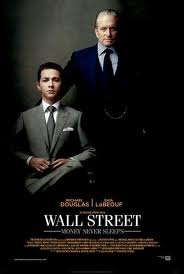Post Modern Irony isn’t worth the toilet paper to wipe it off our collective tushie…
A sub-title could be, “How to make money off people who are afraid to appear stupid.”
There is an art movement afoot. It is a movement to bring back values to art. It is a movement to bring artistry back into art, artistry founded first on an aesthetic of beauty and truth, second on real craftsmanship, and third on an extraordinary grounding in, and comprehension of, the history of art and the great, seminal problems of form that were last faced with integrity by the likes of Gauguin. By “craftsmanship” I mean years of training, apprenticeship, focus, and hard work.
An artist should be better trained than a lawyer before he or she starts selling his creations.
The art movement is tentatively called “the new realists.” My husband Sabin Howard is one of them. There’s an off-shoot called “the slow art movement,” patterned on the “slow food movement,” which affirms the quality of food and the dining experience in a restaurant that doesn’t take shortcuts but takes the real time required to make the ultimate reduction, for example.
You can eat at MacDonalds, if you wish–but we all know it’s going to make you sick.
Speaking of MacDonalds. We’ve all been victimized by the scam artists of post-modernism. One hundred years ago, Marcel Duchamp did us all a disservice by foisting a urinal on us. Okay, for 2 seconds, there’s a surprising juxtaposition, a shock. Intellectual chicanery. But “they” are still doing urinals, one hundred years later. Shock value is over, guys. I guess it’s just hard to leave the ponzi scheme.
All these post modernist pieces that have garnered acclaim–Piss Christ, Dung Madonna, anything by Julian Schnabel–they have a few seconds of shock value. And nothing else. They have no sub-stratum of meaning or value, no connection to a historical continuum and the crucial dilemmas of composition and structure and light, to rest on. HOWEVER, art critics, PhDs, and museum curators like post modernist pieces because they can blather on about how important they are and RACK UP SALES. Folks, it’s about money–scam art–not real art.
Koons worked at the Met and saw how the trend was going. He’s a smart businessman, I’ll gladly give him that. But he’s no artist, and he’s not creating art. And not just because he doesn’t actually make the stuff, he hires NY Academy students and kids in Italy to do it, either. (I hear he pays them $15 – $18 an hour.) It’s because the expensive chotchki’s he’s putting out there aren’t art.
Is it big business? Yes, but so was Bernie Madoff.
I congratulate Mary Boone and that ilk on their rat-like street cunning; I can admire a pickpocket with the best of them. They created a movement that they were able to perpetrate on people who were afraid to say, “The emperor has no clothes.” So many people have been afraid to denounce this crap for the crap that it is because those gallery owners and PhD students could BLAH BLAH BLAH them under the table. No one wants to look ignorant. And boy oh boy them salesmen and dissertation wonks can really talk! But the impact of visual art is visceral. The point is–the silent truthful ones weren’t ignorant. They were being railroaded by mercenaries.
Yes, your five year old kid can do something equally worthy.
There are no masterpieces of post modern art because the stuff isn’t worth the cardboard, dung, condoms, or lucite case that are used to make it. It’s ugly and valueless. The banal is only worth about five seconds of our time; Marcel Duchamp took up those five seconds. The fact that the National Endowment for the Arts funded this junk on the basis of freedom of expression is one of the great idiocies of our time.
Freedom of expression does not validate the ugly, the meaningless, the valueless. It’s still junk. It’s just junk that the NEA funded–to the shame of the USA.
Specifically, post modern art lacks beauty and truth. It lacks transformational power. It lacks the capacity to vault us out of the coma of our everyday life into a state of heightened awareness, heightened consciousness, greater compassion for the human condition, increased seeking for what is higher. Yes, it makes money for the brokers and museums who pawn it off on people. (I heard that the director of the Brooklyn Museum got a kickback for showing some of the junk; can’t say if it’s true, but it was told to me by an art critic who runs a foundation in Manhattan.)
Look for the new realists. Look for the guys like my husband Sabin Howard, and I guess Jacob Collins is one of them, and I really love John Morra’s work, who are taking the long road around to create something meaningful and real, something that addresses art with integrity. Something founded on an aesthetic of beauty and truth. They may not be the most popular people around, but hey, the doctor who told everyone to wash their hands before delivering babies got railroaded out of medicine. Go look at Frederick Hart’s work on the National Cathedral. I admire Burt Silverman’s portraits, too. Check out Daniel Sprick. I personally find Judy Fox’s sculptures cartoonish, but they’re cute. Worth looking at. She seems to be engaged in it and she’s competent.
Go find the artists who have studied their crafts for years, who are engaged in what art means on a daily basis. They’re there. One thing is for sure: your five year old can’t do anything REMOTELY like what they do.
These are the guys who deserve millions of dollars. I am convinced they will reach those heights–Michelangelo died a millionaire–and that the tide will turn as people get sick of meaninglessness and search again for values, meaning, beauty, and truth. We’ll find the Koons balloons in the garbage where they belong.
Last note: my husband looked at this blog and exclaimed, I’m not a realist. Then he said, Oh lord, they’re going to sue you. Just to clarify, this blog contains my personal opinions.





